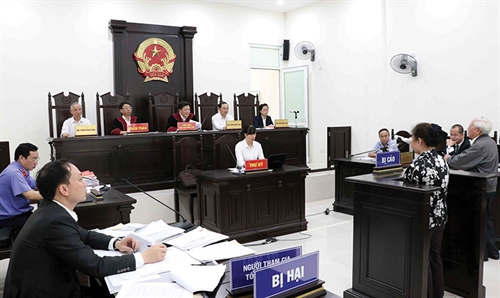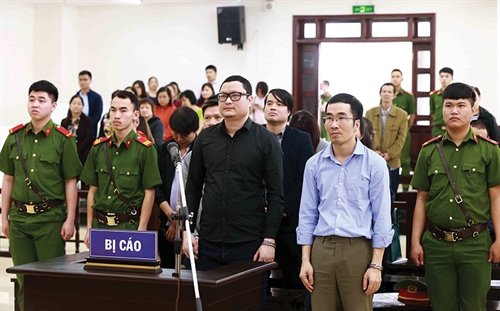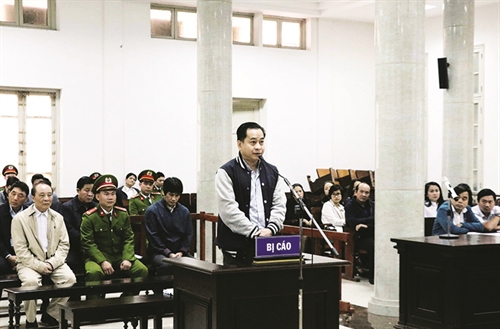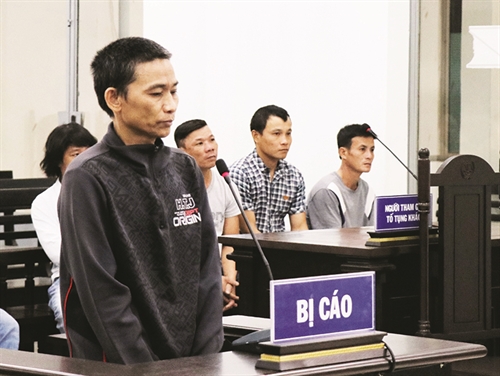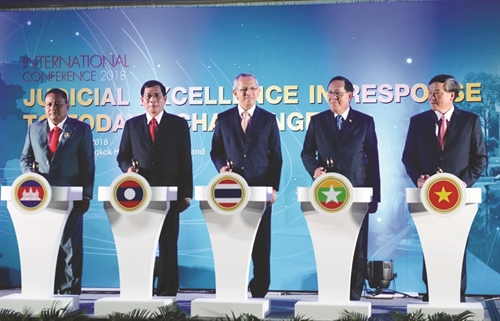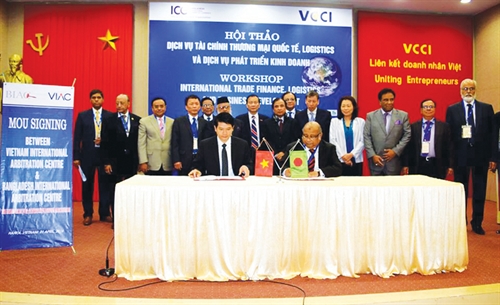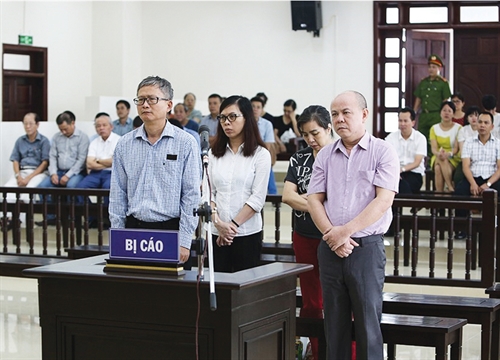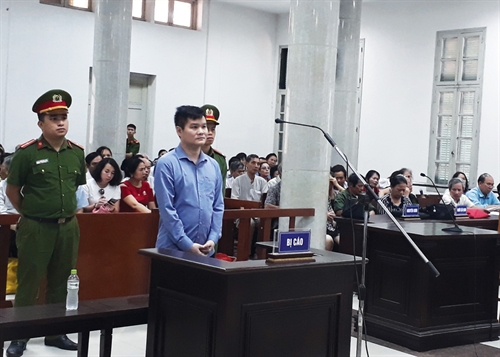Assoc. Prof., Dr. Trinh Tien Viet
Vice Dean, Law Faculty, Vietnam National University, Hanoi
Introduction
The fourth industrial revolution has brought about numerous opportunities and posed great challenges[1] to the society in general and criminal justice in particular as there are numerous important fields directly and deeply impacted by this revolution[2]. This requires a fresh perception of criminal policies, including criminalization and decriminalization policies, as well as a new approach in the prevention and combat of newly emerging crimes, which must be based on the Party’s viewpoints and guidelines, the State’s overall socio-economic and international integration policies and regulations[3], historical-traditional conditions and crime prevention and combat practice. The globalization of criminal jurisdiction also requires the State to develop new criminal policies and reorganize the criminal justice system in order to clearly identify, effectively prevent, respond to and combat newly emerging crimes, particularly those against the national security and sovereignty, social order and safety, human and citizens’ rights.
New criminal policies must contribute to the strengthening of the national criminal justice system, consisting of criminal law, criminal procedure law, criminal judgment enforcement law and law on organization and operation of criminal justice bodies. So far, many laws and regulations have been introduced, thus forming a specific legal framework for the prevention and combat of hi-tech crimes and cybercrimes, including the 2008 Law on High Technology (revised in 2013 and 2014), the 2006 Law on Information Technology, the 2015 on Cyber Information Security, the 2018 Law on Cyber Security, and regulations on artificial intelligence, crypto currency, 3D printing.
Impacts of the fourth industrial revolution
Positive impacts
It’s no doubt that applied information technology facilitates the formulation and implementation of criminal policies. Crime forecasting technology has proved helpful in making crime forecasts based on collected data on time and location of previous crimes combined with sociological information about criminal behaviors and patterns[4]. Hi-tech equipment provides effective assistance for law enforcement bodies in monitoring, surveillance, locating, early detection, storing of data on, reference of information about, and identification and management of criminals.
Global connectivity via the Internet provides lawmakers with prompt and convenient access to enormous data on advanced and useful criminal law-making practices and experiences around the world and enables them to receive feedback from all walks of life about in-force or draft criminal policies[5]. As a result, the formulation of plans, tactics and programs, making of decisions and taking of actions against crimes and their consequences (salvation, rescue, fire prevention and fighting), as well as regional and international cooperation to fight crime have been substantively improved.
The digitalization and via-Internet communication of legal information and documents also help improve public access to and awareness about and sense of observance of criminal law.
Challenges
Technological advances brought about by the fourth industrial revolution have been abused by criminal syndicates to make existing crimes, especially transnational organized crimes such as drug trafficking and money laundering[6], hard to be detected, prevented and stopped. They also give rise to new sophisticated, dangerous crimes in the fields of information technology, telecommunications, finance and banking.
With hi-tech devices and unlimited connectivity via the Internet, criminals may cause harms to and infringe upon rights, especially the right to privacy of information, of large numbers of people around the world without leaving material traces, making it very hard for law enforcement bodies to investigate their acts and leading to a conflict of criminal jurisdiction among related countries.
Therefore, many current criminological concepts, such as those about objects infringed upon by crimes, crime scenes and consequences, territorial jurisdiction over crimes, may become out of date due to changes brought about by the revolution and need to be redefined.
Major orientations for redefining Vietnam’s criminal policies
Non-traditional crimes that arise during the process of globalization and international integration can be defined as unarmed acts that can harm safety and stability of humans, states, nations or communities committed by any non-state entities with new characteristics in location, methods, tricks and objects. Their difference from traditional crimes is mostly attributable to their transnational nature, which can be seen in the following aspects:
First, the space where crimes are committed: Any of these crimes may be committed in at least two countries, from the stage of preparation to the stage of commission.
Second, the scope of impacts of crimes: Any of these crimes may be committed in a certain country but have consequences and impacts in many different countries.
Third, offenders: Any of these crimes may involve organized criminal gangs committing criminal acts in many countries. In reality, members of these criminal gangs are usually experts in information technology, telecommunications, finance or banking and using technological tools and employing sophisticated tricks.
The emergence of these crimes requires adjustments to the existing criminal policies, particularly those on the criminalization of socially dangerous acts newly arising in the application of modern technologies, including artificial intelligence and robotics. All the current international conventions on non-traditional crimes require their member states to incorporate such acts in their domestic criminal laws based on common uniform criteria, thereby ensuring compatibility of criminal laws and providing grounds for cooperation in detecting, preventing and stopping non-traditional crimes.
Such criminalization should also be carried out through recognizing methods and tricks of traditional crimes involving the use of modern technologies, increasing the criminal liability of offenders using modern technologies, and adding new deterrent measures to fight new hi-tech crimes and prevent recidivism, such as confiscation of accounts or data, prohibition of system access.
In the era of globalization, no country alone can handle cyber security issues without cooperating with other countries and every country’s criminal law needs to address cyber security as it relates to national security and defense and the underpinning values of the Internet including privacy, freedom of speech and freedom of information.
Article 6 of the 2018 Law on Cyber Security of Vietnam affirms that the State may apply measures to protect the national cyberspace; prevent and handle acts infringing upon the national security, social order and safety, lawful rights and interests of agencies, organizations and individuals in the cyberspace[7].
Therefore, cyber security as well as value of virtual assets, including crypto currency, should be recognized as a social relation protectable by Vietnamese criminal law.
A non-traditional crime which occurs in a virtual location in the cyberspace may cause physical damage as well as damage to virtual assets. As soon as virtual assets, including crypto currency, are legalized and a mechanism for protecting virtual asset-related property rights is put into place, the criminal law should add provisions[8] on handling cybercrimes, especially those involving accomplices and uncompleted crimes, in conformity with international criminal conventions and other countries’ criminal laws
.
From the above analyses, making major changes in Vietnam’s criminal policies has become urgent. Our Penal Code should be added with provisions on examination of penal liability of commercial legal persons committing non-traditional crimes, particularly those committed in the fields listed in note 2 of this article or in the cyberspace involving the use of cutting-edge technologies, aiming to enhance the prevention and combat of non-traditional crimes. Policies on training of human resources to make, improve and effectively enforce laws against these crimes are also needed.-
